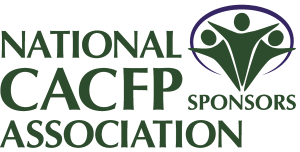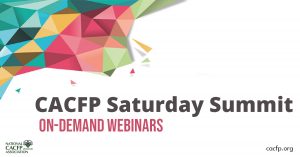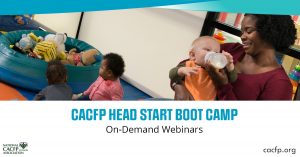Posts Tagged ‘paid webinar’
November Virtual Events
Check out these virtual events coming up at NCA!
Read MoreTiny Tummies, Big Adventures: Understanding Infant Development ($)
Early childhood is a critical phase in nurturing healthy relationships with food and fostering overall development. Explore the sequential journey infants embark upon, from mastering fundamental coordination of sucking, breathing, and swallowing to the gradual acquisition of key feeding skills such as chewing and tongue control. Use the “Stages of Infant Development and Feeding Skills” resource to gain insights into developmental milestones. Uncover the intricacies of each learning step and on the remarkable process of how infants evolve their feeding abilities.
Read MoreTackling Inflation with Smart Budgeting ($)
With the inflation in food costs, the struggle to purchase foods while staying in a budget can be challenging. But is it possible to buy healthy foods and make delicious meals on a budget? Yes! Learn how to plan, utilize savvy shopping techniques, and receive a budget-friendly 2-week cycle menu along with some recipe ideas to try.
Read MoreSnack Attack: Elevate Your Snack Game ($)
Day in and day out, the same snacks are being served. You’ve been longing to elevate your snack game, but you’re lacking ideas. Next up on the menu: snacks, snacks, and more snacks! Hit reset on your menus with some fresh snack tips and recipe ideas. Get creative and add something exciting to the plate for you and the children in your care.
Read MoreLittle Chefs, Big Appetites ($)
We know that children are more likely to try a new food when they are involved in creating a meal or snack. But how do you set up a safe environment at your family child care home that allows children to do this? Learn different strategies on how your kitchen helpers can assist you in making food with age-appropriate tasks, whether it is in the kitchen or eating area. Receive easy recipes to hone their fine motor skills while handling food.
Read MoreExploring Fall Foods: Recipes & More! ($)
The cool, crisp breeze means it’s time for the fall harvest! Learn about five fabulous fruits and vegetables that are ready to be purchased from your local farmer or grocery store. Get recipe ideas on how to incorporate these fall favorites into your menu and learn how to provide nutrition education related to them through engaging activities.
Read MoreEmergency Preparedness in Head Start ($)
The pandemic taught us to always be one step ahead and prepared for the unknown. Discover ways to integrate emergency preparedness and planning into your facility operation plans while including all departments. Practice writing your own emergency plans to support your program and outline your next steps.
Read MoreA Change of Taste: Reducing Sodium in the CACFP ($)
Sodium plays an essential role in our body but consuming too much can cause us harm over time. In the CACFP, it is recommended to serve foods low in sodium. Learn about the the impacts of sodium and how to reduce sodium while still retaining flavor in the meals you serve.
Read MoreUnderstanding Meal Modifications in the CACFP ($)
Have you ever received a parent’s or doctor’s note describing a meal modification or substitution to serve a child in your care? Maybe you
have felt confused or overwhelmed on how to modify the menu to ensure foods are safe to serve to a participant with a disability. Learn about the requirements for having a medical statement to serve safe and reimbursable foods in the CACFP. Identify creditable and non-creditable milk substitutions in the CACFP and understand the documentation needed. Gain valuable knowledge on tailoring foods for special diets, including vegetarian, pureed, and gluten-free diets. Empower yourself with the information and guidance to confidently address meal modifications and provide suitable options for participants with specific dietary needs in the CACFP at your Head Start site.
Fueling Healthy Growth in Early Head Start ($)
Early Head Start sites must often manage two different meal patterns when complying with CACFP requirements based on the age of the children in their care. Learn the differences between feeding infants and toddlers to ensure optimal nutrition and program compliance. Gain valuable insights on how to create balanced and age-appropriate menus, address specific dietary considerations for infants, and implement practical strategies for promoting healthy eating habits to foster a positive mealtime environment.
Read More



